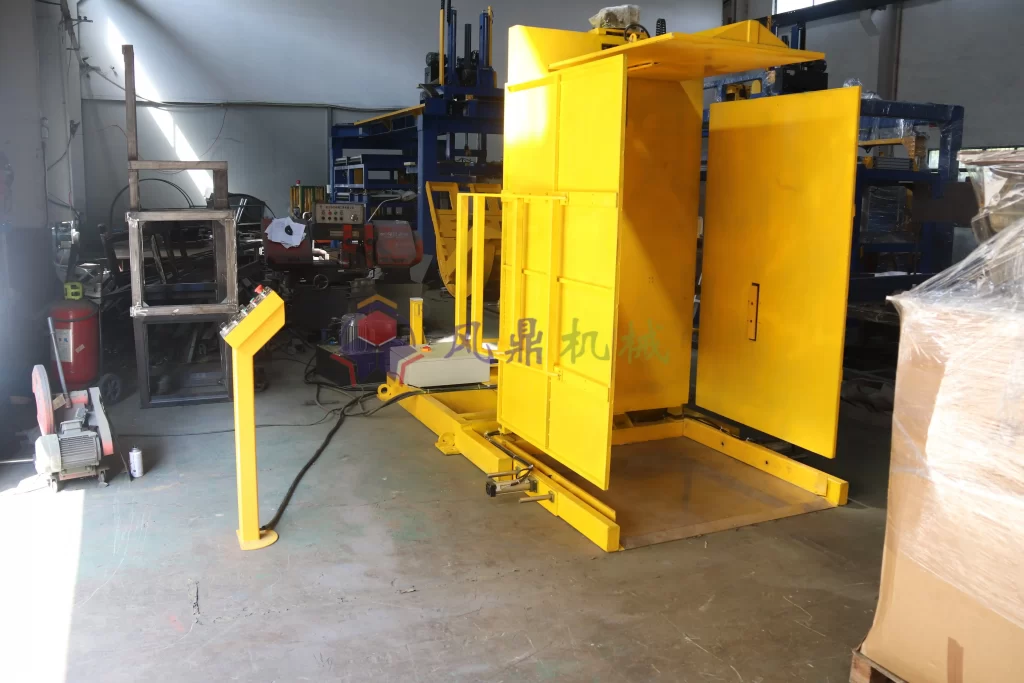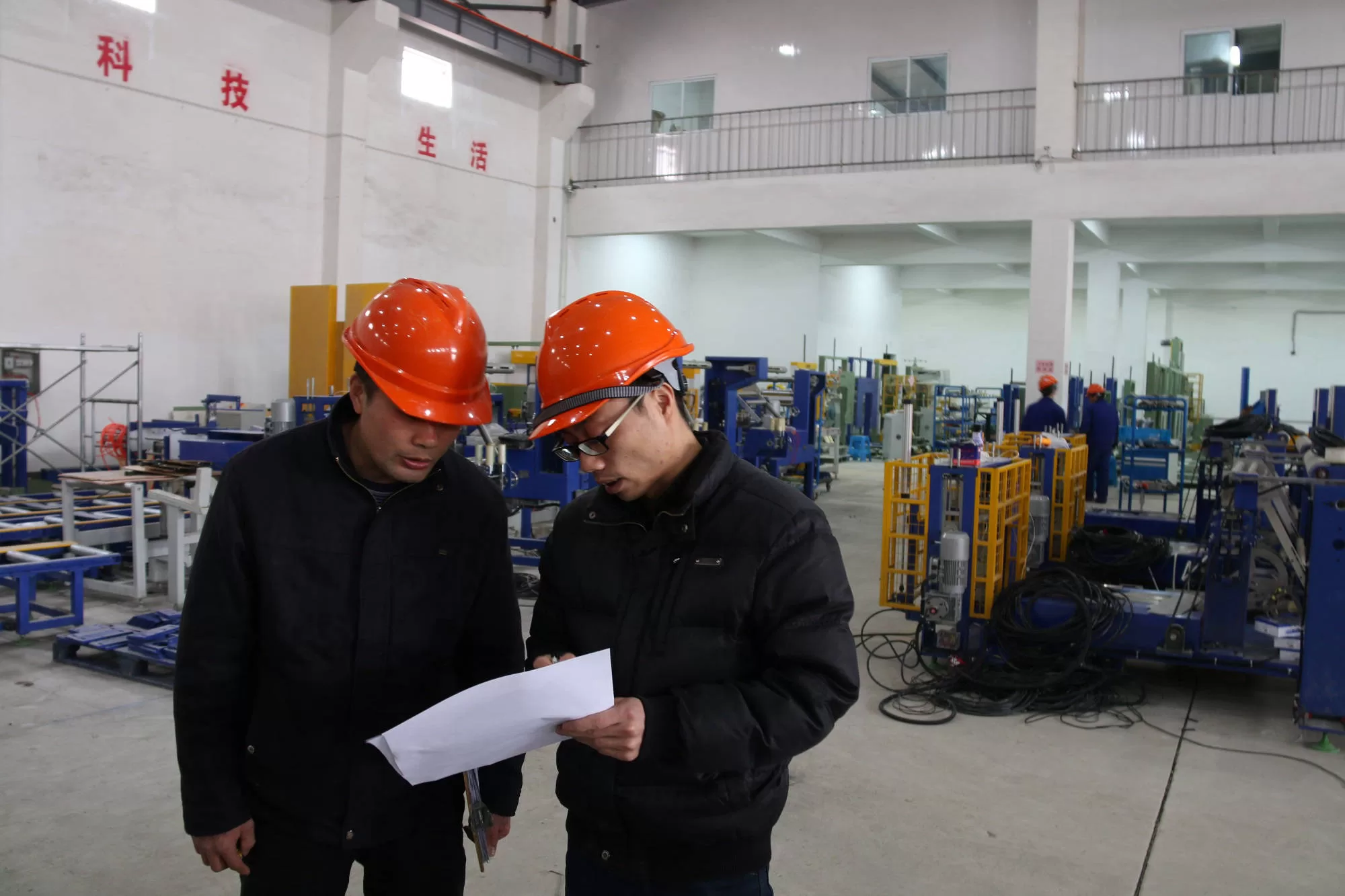Feature-Packed vs. Basic Pallet Inverters: Which Do You Really Need?
- Feature-Packed vs. Basic Pallet Inverters: Which Do You Really Need?
- 1. Understanding the Basics: What is a Pallet Inverter?
- 2. Basic Pallet Inverters: Simple Yet Effective
- 3. Feature-Packed Pallet Inverters: High-Tech Solutions for Complex Needs
- 4. When Does a Basic Pallet Inverter Suffice?
- 5. Why Invest in a Feature-Packed Pallet Inverter?
- 6. Cost Considerations: Upfront vs. Long-Term Investment
- 7. Speed and Efficiency: How Do They Compare?
- 8. Maintenance and Durability: Which Option Lasts Longer?
- 9. Customization and Flexibility: Do You Need More Options?
- 10. Safety Features: Protecting Your Workforce
- 11. Application Across Industries: Which Sectors Benefit the Most?
- 12. Environmental Considerations: Energy Efficiency and Sustainability
- Conclusion: Which Pallet Inverter Do You Really Need?

Pallet inverters are essential tools in modern warehousing and logistics, designed to improve efficiency and reduce manual labor. But when you're faced with the decision between a feature-packed pallet inverter and a basic pallet inverter, it’s easy to feel overwhelmed. Which one is the right fit for your business? Is it worth the investment to go for a more advanced model, or will a simple, reliable option do the job? In this article, we’ll explore the differences between feature-rich and basic pallet inverters, considering their benefits, cost, and application in various industries.
1. Understanding the Basics: What is a Pallet Inverter?
A pallet inverter is a machine used to rotate or flip entire pallet loads without the need to remove the goods manually. This equipment is widely used across industries such as food, pharmaceuticals, logistics, and manufacturing, where products must be transferred from one pallet to another or rotated to maintain load stability. The core function of both basic and feature-packed pallet inverters is the same: turning pallets for easier handling, but their functionalities can differ significantly.
2. Basic Pallet Inverters: Simple Yet Effective
Let’s start with basic pallet inverters. These models are typically more affordable and are designed to perform one specific task—rotating a pallet load—with minimal frills. Basic pallet inverters are ideal for businesses that:
- Have standardized loads with consistent sizes and shapes.
- Operate in environments with low to medium throughput.
- Do not require the handling of sensitive or fragile products.
A typical basic inverter might only offer manual operation with limited control options. It can handle pallet loads efficiently, but it might not have additional safety features, automatic sensors, or adjustable clamps.
3. Feature-Packed Pallet Inverters: High-Tech Solutions for Complex Needs
On the other hand, feature-packed pallet inverters are built for businesses with more complex or demanding operations. These machines come equipped with a wide array of advanced features, including:
- Automatic load centering: Ensuring the load is perfectly balanced before inversion, reducing the risk of product damage.
- Adjustable clamps: Useful for handling loads of various shapes and sizes, offering greater flexibility.
- Safety sensors: Protect workers from accidental harm by detecting when a person is too close to the machine.
- Remote controls and automated operation: Allow operators to control the machine from a distance, improving efficiency.
- Fast inversion speeds: Necessary for high-volume operations, where quick load changes are vital.
4. When Does a Basic Pallet Inverter Suffice?
A basic pallet inverter can be an excellent option for small to medium-sized businesses that do not need the full range of features offered by advanced models. If your operation is primarily focused on routine pallet swapping, with little variation in load types, a simple machine may provide all the functionality you need.
For example, companies in the food and beverage industry often use pallet inverters to swap pallets that have been damaged or contaminated. In such cases, a basic inverter can handle this job efficiently, especially when the load types remain consistent.
5. Why Invest in a Feature-Packed Pallet Inverter?
However, when your business involves handling different types of loads, especially if they are fragile, oversized, or vary significantly in size, investing in a feature-packed pallet inverter can lead to long-term savings. Here’s why:
- Minimized Product Damage: With adjustable clamps and automatic load centering, feature-packed inverters handle delicate goods with precision, reducing the risk of breakage or product loss.
- Improved Throughput: In environments with high-volume operations, such as pharmaceuticals or e-commerce, advanced pallet inverters offer faster cycle times, meaning you can process more loads in less time.
- Enhanced Safety: With built-in safety features, including sensors and remote operation, feature-packed models offer additional protections for workers, helping you maintain a safer work environment and potentially lowering insurance costs.
6. Cost Considerations: Upfront vs. Long-Term Investment
One of the biggest factors in deciding between a basic and a feature-packed pallet inverter is the cost. It’s easy to look at the price tag of a feature-packed model and feel hesitant, but it’s important to consider the long-term return on investment (ROI).
A basic pallet inverter has a lower upfront cost, which can be appealing if your business is just getting started or operates on a tight budget. However, it might require more manual labor to operate and may not handle all types of loads, potentially leading to higher operational costs in the long run.
In contrast, a feature-packed pallet inverter might come with a higher price tag but can reduce labor costs and improve operational efficiency over time, particularly in industries that handle a variety of load types or work with fragile goods.

Get Your Best Solution !
7. Speed and Efficiency: How Do They Compare?
When it comes to speed, there is a clear distinction between basic and feature-packed pallet inverters. Basic models are usually designed for low-volume operations, where speed isn’t a top priority. These machines can still provide significant efficiency gains over manual handling but may slow down when tasked with handling different pallet sizes or types.
On the other hand, feature-packed models are optimized for high-volume settings, where speed is essential. They often come equipped with automated functions that allow for quicker load handling without compromising safety or precision.
8. Maintenance and Durability: Which Option Lasts Longer?
Both basic and feature-packed pallet inverters are built for durability, but the more complex the machine, the more attention it may require in terms of maintenance. Feature-packed models typically have more moving parts and advanced systems, such as sensors and hydraulic mechanisms, which may need regular upkeep to ensure optimal performance.
However, basic pallet inverters, with their simpler design, often require less frequent maintenance, making them a more cost-effective option in terms of long-term upkeep. This can be a crucial factor if your operation doesn’t need the additional features of a more advanced inverter.
9. Customization and Flexibility: Do You Need More Options?
One of the key selling points of feature-packed pallet inverters is their customizability. These models often offer more flexibility in terms of the types of loads they can handle, the variety of pallet sizes they support, and the additional settings for different operational needs. For instance, automatic load adjustments or programmable controls allow users to set specific parameters for different load types, ensuring seamless handling across various operations.
In contrast, a basic pallet inverter typically comes with a more limited set of features. It may lack the ability to handle irregularly shaped or fragile loads, or it might not have the customization options that businesses with specialized needs require. However, if your operations involve standard load types and do not require frequent adjustments, a basic model could still perform the job effectively.
10. Safety Features: Protecting Your Workforce
Safety is always a top priority in any industrial setting, and pallet inverters are no exception. Basic pallet inverters generally provide a level of safety that exceeds manual handling, as they reduce the physical strain on workers and lower the chances of accidents related to lifting or turning heavy loads manually. However, they may lack more advanced safety mechanisms, such as proximity sensors or emergency shutoff systems.
In contrast, feature-packed pallet inverters often come with a range of safety features designed to protect both the workforce and the product. For example, many advanced models include sensors that detect when a person is too close to the machine, automatically pausing the operation to avoid accidents. Additionally, these models might have remote operation controls, allowing workers to manage the machine from a safe distance, further reducing the risk of injury.
11. Application Across Industries: Which Sectors Benefit the Most?
The decision between feature-packed and basic pallet inverters can also depend on the industry in which they are used. Some industries benefit significantly from the added features of advanced pallet inverters, while others may not need the additional capabilities.
- Food and Beverage Industry: Feature-packed models are often preferred in this sector due to their ability to handle a wide variety of products, including delicate or perishable goods, which may require gentle handling or special safety measures.
- Pharmaceutical Industry: High-value products and strict regulatory requirements make the added safety and precision features of advanced pallet inverters crucial in pharmaceutical operations.
- Logistics and Warehousing: For businesses dealing with high-volume operations, a feature-packed inverter can help improve throughput and reduce the risk of damaged goods, but smaller warehouses with standard loads may find a basic inverter more than sufficient.
12. Environmental Considerations: Energy Efficiency and Sustainability
Another important factor in choosing between a feature-packed and basic pallet inverter is the environmental impact. Many advanced models are designed with energy-efficient features that minimize power consumption and reduce the overall environmental footprint of the machine. These inverters may come equipped with energy-saving modes, automatic shutoffs when not in use, and hydraulic systems designed to operate more efficiently.
While basic pallet inverters are often simpler in design and might not have such sophisticated energy-saving features, they can still offer reduced energy consumption compared to manual operations. However, for companies with sustainability goals, opting for a more eco-friendly, feature-packed inverter may align better with their long-term environmental strategy.
Conclusion: Which Pallet Inverter Do You Really Need?
Ultimately, the decision between a feature-packed pallet inverter and a basic model depends on your specific business needs, budget, and operational goals. For businesses with straightforward load handling requirements and limited budgets, a basic model might be the perfect fit. However, for those looking to increase efficiency, enhance safety, and handle more complex loads, a feature-packed pallet inverter offers the advanced features and automation that can make a significant impact on both productivity and worker safety.

Get Your Best Solution !








